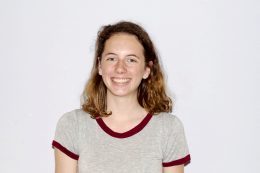
The College Board estimates that the average student will spend over $600 per semester on textbooks. That total, multiplied by the eight semesters most students will spend here, means that in-state students will spend about half a semester’s worth of tuition on books alone. Much thought has been given to how to save students money on textbooks, but there seems to be little change actually taking place.
An increasingly popular alternative to expensive textbooks are open educational resources. These are, according to the United Nations Educational, Scientific and Cultural Organization, “any type of educational materials that are in the public domain or introduced with an open license.” This means that everything from a course syllabus to recordings of an entire class can be accessed and changed by anyone in the world at no cost. In order to support its students in efforts to lower the cost of higher education, Binghamton University should encourage the use and development of open educational resources by professors.
Open educational resources offer cheap alternatives to physical textbooks and they also encourage a collaborative and global educational environment that is tantamount to the motto of the University, “from breadth through depth to perspective.” Adding more opportunities for in-depth studies of topics at no cost makes it more likely that students will seek out resources and classes in specialized subjects.
According to Inside Higher Ed, New York state earmarked $8 million for the development of open educational resources for the SUNY and CUNY systems starting this fall. SUNY has already done some work to support the creation of open-source textbooks through the Open SUNY initiative, but the use of these resources at BU seems to be discouraged. BU grants funds to many worthy research and scholarly publishing projects, most often with the goal of benefiting the community. At BU, the Open Repository at Binghamton hosts resources like the Binghamton Women’s March photo archive and scholarly papers by students and faculty. These have been downloaded around the world in places like the Philippines, Iran, Italy and Poland. The repository, although beneficial, does not contain any full-length textbooks or particular course-related material. So, there is an acknowledgement that access to this scholarship is important, but not necessarily in the ways that might benefit students most.
Using open educational resources in the classroom saves students money and lessens the burden on libraries to provide tangible copies for course reserves. These resources don’t need to be issued in new editions — since they are usually hosted on a website or another digital platform, they can be updated, in theory, as quickly as information changes. This is particularly valuable for courses in subjects like media literacy and political science which change around-the-clock as events occur.
International education and awareness is vital today and BU prides itself on collaboration with colleges, students and other institutions across the globe. By funding efforts to connect BU professors with those in other locations in the pursuit of creating open educational resources, the University has the opportunity to provide more multifaceted scholarship to its students. For example, the BU theatre department has already established a strong relationship with the National Academy of Chinese Theatre Arts, providing students with the opportunity to take classes like THEA 387B: Beijing Opera Face Painting and THEA 387C:Beijing Opera Combat. This partnership could be furthered by the publication of videos and recordings online, so students who cannot study such topics in a formal setting have access to them for free. The ability to take a whole class on this specialized scholarship is one of the perks of going to BU, but the information in such a course should be accessible to anyone.
Because of the relative novelty of these resources and the fiscal support coming from the state, BU has the opportunity to become a major center of resource sharing and to gain a reputation as an institution that is globally engaged in the fight for access to information and education. The first step on the part of the University is to acknowledge that open educational resources have the opportunity to greatly benefit its students.
Georgia Westbrook is a senior majoring in art history.


